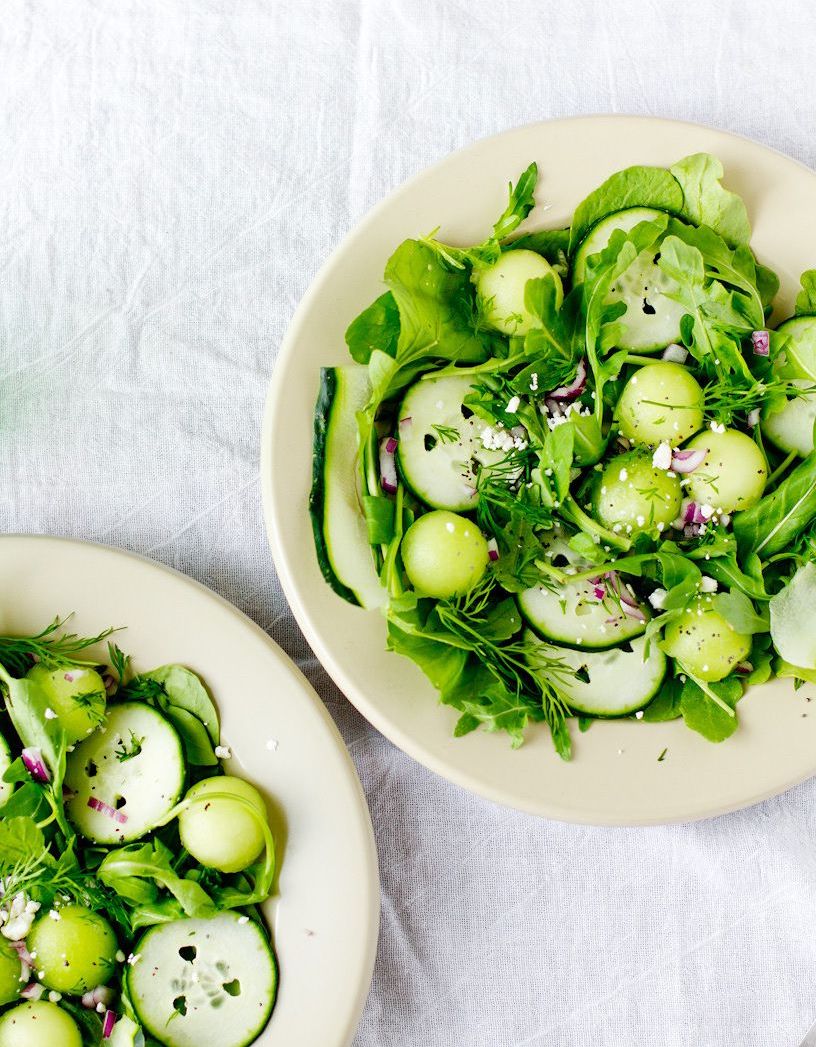Beauty...

By Hilary Sheinbaum
It happens to all of us. Sometimes after a meal, our bellies feel swollen for an extended period of time. (Ugh.) This discomfort, a.k.a bloating, can even occur after eating foods that are good for us! Although it’s natural, this can be especially annoying when we’re trying to maintain a healthy diet and keep a tight tummy.
In these instances, it’s important to take note of what’s on our plates. To debloat quickly (and by that we mean overnight), there are a few foods to avoid and — of course — suggestions of what to eat instead.
The day before a big event, a day at the beach, this list is helpful for snacking, meal prep, cooking and dining at restaurants, to keep stomachs from feeling like they’re at the brim.
May Zhu, RD, LDN, at Nutrition Happens, in Chicago, says, “While cruciferous vegetables are very nutritious and provide the fiber that helps support smooth digestion, the excessive fiber in one sitting can lead to gas and bloating. Vegetables like kale and broccoli contain a natural sugar called raffinose which remains undigested until the bacteria in our gut ferments it. The fermentation of fiber in the large intestines produces gas as a byproduct and could be a cause of excessive bloating.” Zhu notes, however,
“Consistently eating nutritious, high-fiber foods creates a stronger digestive system over time so that it creates less bloating over time.”
“A good rule of thumb is to aim for 25 grams per day for women and gradually build up how much fiber you consume over time.”
Zhu adds: “If you have an event coming up and are looking to debloat quickly, opt for hydrating vegetables like asparagus, cucumbers, zucchini, and leafy greens. They also provide fiber but in smaller amounts. More importantly, vegetables like cucumbers and leafy greens contain mostly water to help flush out excess sodium that may contribute to bloat.”
“Brussels Sprouts contain sulfur, and that can cause bloating and gas as it breaks down in the system”, says Maggie Michalczyk, RDN, of Once Upon a Pumpkin in Chicago.
“Sauerkraut is still in the cruciferous veggie family just like Brussel sprouts however, sauerkraut is a fermented food, which is actually great for our gut,” says Michalczyk. “They help feed the good gut bacteria that we want our guts to be populated with.”
“Soy is one of the most common food allergies in the US,” says Kurt Waples, Chief Medical Advisor REACH Nutrition Co. & Founder Bluestone Health Group in Stamford, CT. “Soy sauce is added to many foods and if you begin to look at ingredients and ask your server about certain dishes at restaurants you will find it is hidden in many more foods than you could have imagined. It has been estimated over 90% of soy in the US is genetically modified. In animal studies, GMO foods have been found to be especially damaging to the liver and kidneys.”
“The great news here is there are many non-soy alternatives to use,” says Waples. “Liquid Aminos and Coconut Aminos have helped thousands of people enjoy soy flavor again without the damaging impact of soy on their immune and digestive systems.“